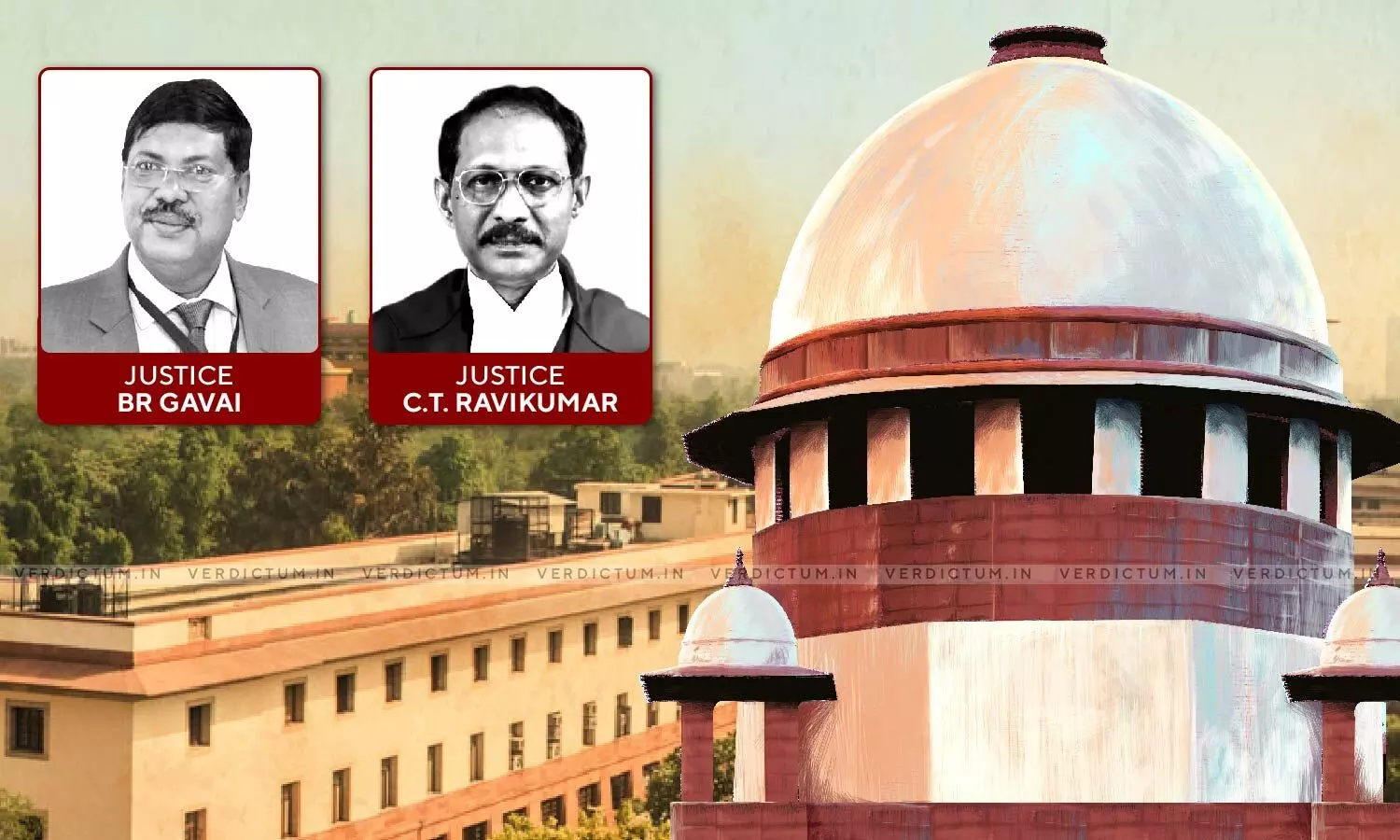
Motor Accident Claims- Multiplier For Victims Up To Age Of 15 To Be "15"- SC While Enhancing Compensation
 |
|A Supreme Court Bench of Justice BR Gavai and Justice CT Ravikumar enhanced the compensation awarded by the Madras High Court in a motor accident claim, and held that "On careful scrutiny of the heads of compensation, bearing in mind the aforesaid decision, we find that the appellant is entitled to enhancement/grant, of compensation on certain grounds".
Notably, the Court confirmed that the multiplier of victims up to the age of 15 years should be taken as "15".
Counsel T Harish Kumar appeared for the Appellant, and Counsel Abhishek Gola appeared for the Respondent.
In this case, the Appellant met with an accident when she was two years old, owing to a car dashing against the autorickshaw she was in. She sustained very serious injuries. The Motor Accidents Claim Tribunal dismissed her claim on technical grounds. However, the High Court reversed the order of the Tribunal and ordered the Insurance Company to pay a compensation of Rs. 13,34,000/- with interest at the rate of 7.5% per annum.
The Appellant approached the Supreme Court seeking enhancement of the compensation under different heads.
On careful scrutiny of the heads of compensation, the Supreme Court found that the Appellant was entitled to enhancement/grant of compensation under various headings.
Under Attender Chargers, the Court noted that an incongruity existed in the selection of multiplier in the case of persons belonging to the age group up to 15 years. In that context, the Court analyzed a catena of judgments including Sarla Verma (Smt) & Ors. vs. Delhi Transport Corporation & Anr and Reshma Kumari & Ors. V. Madan Mohan & Anr.
In that context, it was observed that "the selection of multiplier '15' for the age group upto 15 years by the three-Judge Bench in Reshma Kumari's case is having a sound basis. It is common knowledge that the age group of 21 to 25 years is regarded as the commencement of normal productive years as referred specifically by the two-Judge Bench in Sarla Verma's case at paragraph 39. True that in Sarla Verma's case the same multiplier viz., '18' is selected for the age group 15 to 20 years. In this context, it is relevant to refer to the Child and Adolescent Labour (Prohibition and Regulation) Act, 1986, which is an enactment to prohibit the engagement of children in all occupation and to prohibit the engagement of adolescence in hazardous occupations and process and matters connected therewith and incidental thereto."
In a similar context, the Court further observed that "when there is clear prohibition under an enactment for engagement of children and the definition of "child" under the said enactment takes in children who have not completed their fourteenth year of age within its fold, there is certainly justification for selecting a lower multiplier of '15' in the case of victims belonging to the age group upto 15 years. Since the Constitutional Bench in Pranay Sethi's case held Rajesh's case (supra) as not a binding precedent for not taking note of decision in Reshma Kumari's case, held that the formula relating to multiplier has been approved in Reshma Kumari's case after extracting the afore-extracted paragraph No. 43.1 and 43.2 in Reshma Kumari's case and that the three-Judge Bench in Reshma Kumari held that as regards the cases where the age of the victim happens to be upto 15 years the multiplier should be '15' we are bound to take the multiplier of victims upto the age group of 15 years as '15'."
In light of the same, the Supreme Court held that the High Court had rightly identified the multiplier. The Court further calculated the final amount to be Rs. 17 lakhs under Attender Charges.
Under Pain and Suggerings and Loss of Amenities, the Court said that since the disability was assessed as more than 90%, it was inclined to grant an amount of Rs. 3 lakhs additionally.
The Supreme Court also granted an additional amount of Rs. 3 lakhs for the Loss of Marriage Prospects, Rs. 1 lakh for Future Medical Treatment, and Rs. 90,000/- for Extra Nourishment.
Therefore, the Apex Court enhanced the compensation awarded by the High Court to Rs. 24,90,000/-and ordered the insurance company to deposit the enhanced amount with interest at the rate of 7.5% per annum.
No orders were passed regarding costs.
Cause Title: Divya vs The National Insurance Co. Ltd. & Anr.
Click here to read/download the Judgment